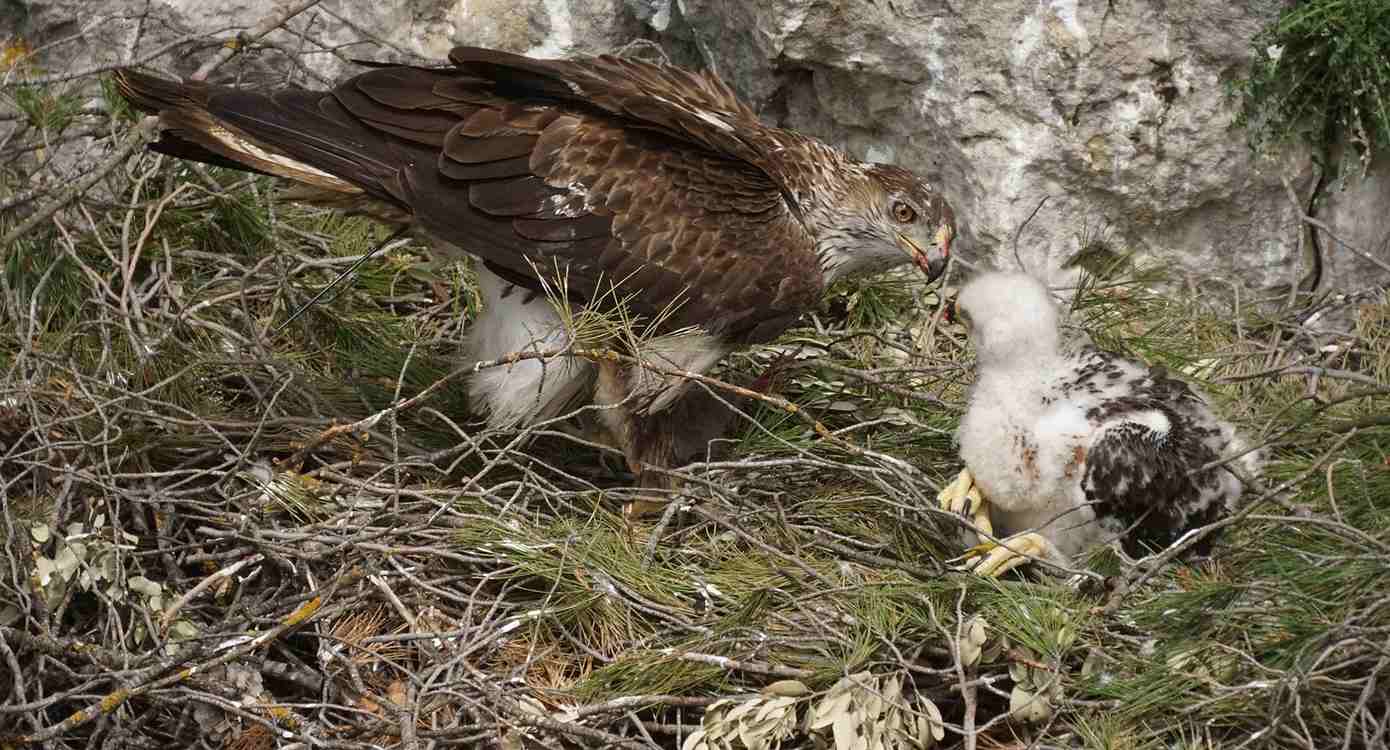
51 breeding pairs of Bonelli’s eagles have been recorded in France’s Mediterranean regions, more than double the number recorded in the early 21st century.
Though considered a species of least concern in the world, Bonelli’s eagle is vulnerable in Europe, and threatened in France, where it nests on cliffs and hunts small mammals.
The survey of mating pairs was published on July 28th by the Roussillon Ornithological Group.
In 1999, around 20 breeding pairs returned from their winter migration, representing a population collapse of over 75% from previous highs. The resulting years saw three successive National Action Plans (NAPs) which employed traditional raptor conservation strategies like habitat protection, outreach to hunters, chick tagging, and satellite tracking to boost those numbers back above 50.
The NAPs were organized by the Ministry of Ecology, Sustainable Development, and Energy and led by a collective of naturalist associations and representatives of the hunting world, along with local authorities.
Bonelli’s eagle is one of the smallest of the ‘true’ eagles, or Aquila genus. Despite this, it’s known as a bold and rapacious predator, yet like many birds of prey, mates for life. Named for the Italian naturalist who would catch the type specimen, they inhabit many countries of the world, including those in North Africa and the Indian subcontinent.
YOU CAN’T TAKE THE SKY FROM ME:
The European population is estimated to be between 1,100 and 1,200 pairs according to a BirdLife International survey in 2015, with Spain hosting more than 700 alone. In France, the recovery of their population has seen them reclaim previously abandoned haunts, like the Alpes-du-Haute.
38 of the bonded pairs laid eggs which hatched into 34 chicks, giving hope that the country may reach its original goal of 60.
SHARE This Encouraging Return To France’s Skies For This Small Eagle…


Leave a Reply